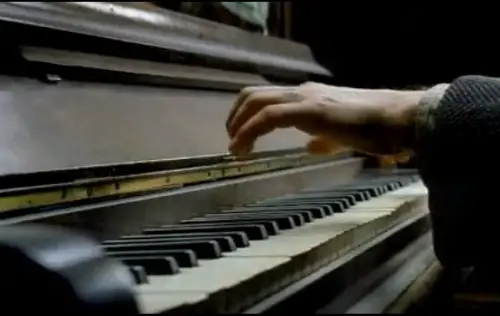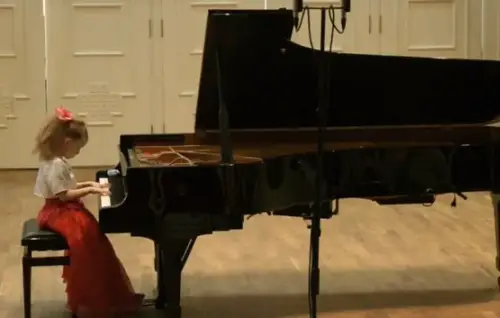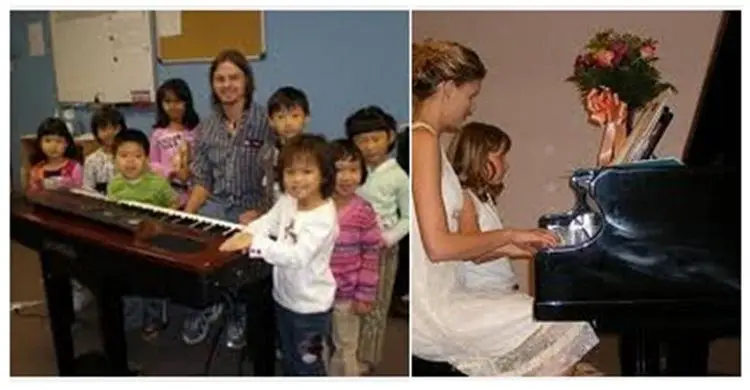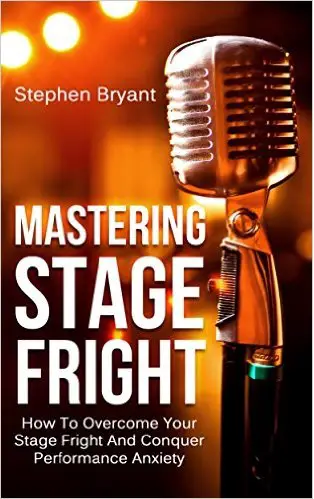
Piano Performance: Here are suggestions to help you improve your performance, be in Control and reduce performance anxiety. Top tips to improve performing piano on stage or in front of an audience, and how to deal with stage fright.
Piano performance – Not same as playing for Yourself
Ok, so you can play the piano quite well, but how about performing?
Have you ever been on stage and performed in front of a crowd? Have you ever done that?
I am sure not many of you would have had that opportunity yet. It may not have to be a crowd also; you may be required to perform in front of a group of moderators as part of a competition or an examination.
Sooner or later you will have to do it and it is better that you be prepared from your side whenever that opportunity arises.
Well, performance is bit different from playing for yourself!
It is because when playing for yourself or for your close ones, you can afford to do mistakes and nobody would mind or criticize your playing. It is not the case though while performing in front of people you do not know.
Almost every performing artist in this world would have had to deal with performance anxiety, also known as stage fright.
As with any other skill, this is something which you will get used to over a period of time; the more you perform the more you will be comfortable and the better you become.
If you wish you can even record your piano performance on Video, to analyze it better. For more information on recording videos, have a look at this site!
Appearing for Piano Competitions
To be honest, if you want to face a piano competition confidently and if you want it to be fun and exciting, there is no other way than preparing for it months in advance. You heard it right, there is no other way to do it!
Proper planning and giving sufficient time for the needed preparation is what you need to do for comfortably appearing for a competition.
Doing it too little and too late will only cause you stress, anxiety and embarrassment, all of which can easily be avoided if you start early.
All the music related materials and repertoire is usually available to the participants almost a year before the contest. This is because the organizers themselves think that preparing thoroughly would indeed take so much time.
To successfully appear for a competition, you will need to learn the various aspects of the pieces like phrasing, dynamics, pedaling and memorize those pieces.
Even after memorizing, you need to do mock performances/recital before you can appear for the competition. You can do this at home/school/church, wherever you can arrange it; the purpose is to make you comfortable on stage. Preferably, dress yourself the way you are likely to dress yourself on the day of the contest, including your shoes.
Ideally, you should be doing at least three mock recitals before an audience, and that too at least a month before the contest. This will give you sufficient time to sort out any issues that may have got in to your playing.

External Factors
– Unlike students of other instruments, piano students have to perform on pianos on which they have not played earlier.
This can be an issue since most of the time you would find that the keys are much stiffer than the ones on which you may have practiced.
– Children need to keep in mind that they need to slow down while playing. Kids normally tend to play at a faster pace when under stress. So make sure that your kids get sufficient rest the day before the contest.
– Most of the qualities on which judges give scores, can only be judged subjectively; various judges can have different ways of judging the same thing.
So it is important that you take it easy if you are disappointed with your marks. Same goes for your kid’s performance as well! Just enjoy the experience and make sure that you leave the location feeling confident.
If you use all the time that is available to you before the contest, the music can be learned solidly and memorized thoroughly. For this, it is imperative that you start preparing as early as possible to avoid the last moment performance related anxiety.
Preparation for a Performance/Concert
Though being comfortable on stage is important, if you are not fully prepared with your piece, it will make you jittery which will further add onto your nervousness.
It simply means you will need to take care of other things as well, as part of your preparation for a live performance.
Let us go through these important aspects, please remember that you need time and patience to do justice to these steps.
Planning for the Performance
- Learn about the piece and the composer! Do some research on the culture/history of the time when the piece was composed! You will get insights into what the composer wanted to communicate to the listener. It will also help you to talk to the audience about the piece.
- Plan how much time you are going to devote to learn the piece. Learning the piece would mean getting a good grasp over the technical expertise needed to play the piece and to memorize the piece.
- Memorizing the piece would mean knowing the piece inside/out. You should be able to know how each phrase in the score sounds like, you should be able to hum/sing the left hand and the right hand notes individually.
- Plan for few mock sessions before the final performance and give sufficient time between these sessions so that you can improve on your weaker spots. Make these mock sessions as realistic as possible!
Preparing for the Performance
- As mentioned earlier, you need to be fully prepared with your pieces else you do not stand any chance of performing well. Having control over the music is important to have a control over yourself while performing.
- Make sure your memorization process is spread across days and not crammed in just one long session. It will never work that way! If you cram everything in one session, you may remember the piece for some time but you will then start forgetting bits as hours pass.
- During your practice sessions, do not play at much higher speeds to finish the pieces in a short time. Stick to the actual pace of the piece! Slow down if you are not able to get control over certain sections of the songs, but once you have learnt it well, play at the actual pace.
- Exercise and be fit! It will improve your focus and your body will feel much better.
Day of Performance
- Get as much rest as possible on that day and the previous day. Avoid outdoor activities the previous day, in case you get hurt. Basically, take rest and keep your mind calm!
- You may take drugs such as beta-blockers (for performance anxiety), after doing your own research and after consulting your Doctor. I personally do NOT recommend it.
- To err is human! I mean it is ok to miss some notes here and there or to have some memory slips. So do not get upset with yourself when that happens during your performance. Do not STOP and just continue with the piece. With time, you will learn to cover up such small mistakes while performing.
- Once on stage, breathe as much as possible and remember that there is no need to rush through things. Take your time to get your focus back, once you walk up to the piano to begin or when you finish one piece and move onto another. If you hear people talking, wait for them to stop before you begin. Basically, take as much time as you need to get your focus back!
Concert Tips From Toronto Piano Teacher
When your piano teacher has been teaching to play the piano for over 50 years, you really don’t want to lose out on the opportunity to learn from them, even if its distant learning.

Meet Doreen Hutt who has been teaching Toronto children since the end of the Second World War. Here she discusses ‘concert piano’ manners, which can come handy to any piano student.
Here are some very useful suggestions from this widely experienced piano teacher.
- Bow to your audience and say what piece you’re playing in a big voice.
- No hands in your pocket, and stand straight
- Please move the bench back before you sit down to play; you don’t want to look like sardines, she says
- Though you may use sheet music, don’t even think about depending on the sheet music to play as it all should be memorized by show time.
She warns children practicing the tambourine, triangle, sandpaper and rhythm sticks that will accompany one piano piece to keep their eyes on her during the concert because “I’m the biggest goof-off who ever lived so if I make a boo-boo we’ll know whose fault it is.”
And what about the charges? Is it expensive to learn here? At $8.50 an hour to start and a yearly fee of $76.50, this group piano learning program run by the Canadian Bureau for the Advancement of Music is not really expensive. Its actually an affordable way for someone who wishes to learn piano. The piano lessons are provided in groups of up to eight students.
Dealing with Stage Fright
Get rid of Stage Fright with these effective tips, and see how you can enjoy performing on the piano.
Does stage fright really bother you?
I am sure it would if you have not been on stage before. It is something which every musician would also have experienced at some stage of their life.
Even if you have not performed yet on stage, be informed that it is not the same as playing in front of your friends/family members.
Performing in an alien environment and in front of people you don’t know can be a challenge. At the same time, just like any other skill, you can learn to be comfortable on stage and with practice it does become easier & fun to perform on stage.
Overcoming Stage Fright – Steps to Remember
One thing worth remembering is, most of the time the anxiety on stage is not because it is indeed scary on stage, but it is because we ourselves are not prepared to play the pieces, which adds to the anxiety.
So here are some suggestions for conquering stage fright – some stage fright tips!
1. Check out the place
If possible, check out the place where you are going to perform. Note the commuting time, lighting, acoustics and temperature. This will make you feel comfortable on the day you perform.
[easyazon_link identifier=”B075SDG73Q” locale=”US” tag=”keytarhq04-20″ cart=”n”]

Mastering Stage Fright: How To Overcome Your Stage Fright And Conquer Performance Anxiety[/easyazon_link]
2. Be Prepared
Most important tip! How much ever confident you are on stage, it will not help if you are not prepared. Do mock recitals before the actual event!
3. Breathe
Breathe, breathe & breathe to stay calm and composed on stage. You will not be tempted to play faster and you can recover easily from slips/mistakes.
4. Stretch
If you have a long session or if you have a break between performances, make sure to stretch during the breaks.
5. Don’t rush
Take you time to get settled and to get back your focus, before you start. There is no need to rush through things.
6. Participate
Always look for opportunities to play on stage. The more you play on stage, the more you will feel comfortable on stage.
7. Interact
Always look for opportunities to interact with the audience; you can give a brief overview of the piece that you are going to play.
Start using these right away
As mentioned earlier, most of the anxiety is because we are not prepared; keep that in mind and start using the suggestions listed here. I hope you will be able to give your best shot for your next performance!
Pianist show how to deal with a broken piano in the middle of a performance onstage
Pianist Ben Folds continues despite a broken piano, after all the show must go on.
American singer-songwriter, pianist and record producer Ben Folds was performing at the Meyer Theatre, when his onstage partner let him down.
Three songs into his sold-out concert, Folds, known for his very physical style of playing, blew a string in his Yamaha grand piano.
“I hit the wrong note so hard that I broke it. Second stop on the tour and I’ve already started breaking the piano,” joked Folds.
Folds and a member of his production crew popped the lid of the piano and took a look underneath, coming away with a broken string in hand.
Despite that, the flamboyant Folds went right back to his piano and started playing “Selfless, Cold, and Composed.”
But when he played “Capable of Anything”, another string got pulled out from inside the piano (his low F key was gone).
Now what?
“I have to say, it certainly adds a challenge,” Folds said, sounding remarkably cool for an artist whose instrument seemed intent on sabotaging his show.
It’s a rare occurrence (the strings breaking), especially for a new instrument, but the power with which Folds pounds on his piano, there’s a small chance.
“That guy truly mashes the keyboard. His style, which sets him apart, is based on the dynamics he brings to each one of his songs. So there’s sometimes … where he used his fists and his forearms. If he played that way on an upright piano, strings would break left and right,” Dan Rafferty, host of The Piano Lounge Sing-Along.
But if the F note was gone, he could have still performed in another key?
While that’s true, its not so easy…I know piano students have been taught to learn all the keys and they’re even told that they should know how to play a song n all the 12 keys. However, professionals don’t do that (surprised?)
“You can play any song in any key you want, but if you practice and are known and have a recorded song in that key and play it a certain way, to be able to change mid-show is not easy,” Rafferty said.
The piano belonged to Folds, who prefers to tour with his own piano. The Meyer just provides the tuner. “It’s all his piano, his strings, his mics in the piano. We just supply power to him actually,” said the manager.
However, what was remarkable about the show is that the missing F note became a running theme. Folds joked about it, and used it to great comedic effect. Folds showed no signs of a temperamental artist who was frustrated or irked.
When someone requested Folds to play “You to Thank,” he made a face, noting how heavy the song was on the missing bass note. “But I’m going to do it anyway. (Expletive) it.”
I’m sure there’s a lot to learn from this incident, including how to be a professional, for those who regularly perform for an audience.
In this case, Folds may have been missing a note, but the performance never missed a beat – a perfect reminder that nothing beats the experience of a live show.
Watch: Ben Folds: NPR Music Tiny Desk Concert
Closing Thoughts
I guess you now have sufficient information to plan out your next performance. As you have seen, planning and preparation plays an important role for delivering a great performance. Once these are taken care of, it becomes easier to take control of your performance anxiety.
See Also
More Piano Tips
Back to Home page from Piano performance/concert tips
KeytarHQ editorial team includes musicians who write and review products for pianists, keyboardists, guitarists & other musicians. KeytarHQ is the best online resource for information on keyboards, pianos, synths, keytars, guitars and music gear for musicians of all abilities, ages and interests.



Leave a Reply